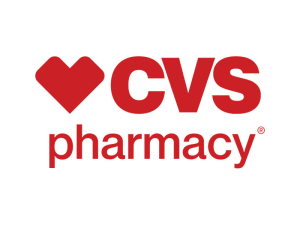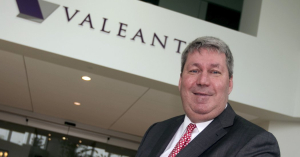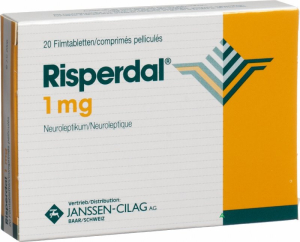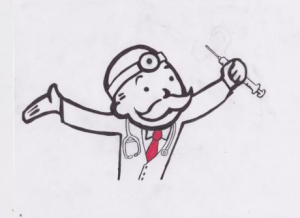
It doesn’t require a government takeover. Most of the next year’s debates over health care will talk around the problem. They’ll be the same-old tired arguments over public vs. private control.
In the end it doesn’t matter. You can’t have an unlimited draw from a limited pool of funds. Make that the key to policy and you can develop sound policy. You don’t have a choice about buying health care. You don’t even have much choice on who you buy it from.
The solution has three parts.
Managed care. Bargain for drugs. Guarantee competition.
Let’s start with managed care.

Centene is the name to know. Centene makes money serving Medicare and Medicaid patients. These are high risk people. Private insurers say they can’t cover them. Centene takes what money the government provides, and if it can deliver a year’s care it makes money.

How do they do it?
First, they own the facilities. They own the clinics and imaging centers. They employ the front-line doctors. This means no padded bills, and no unnecessary tests, which are the problem when income doesn’t control outgo.
Second, Centene focuses on keeping people well, and keeping sick people out of hospitals. This means you see a doctor regularly, whether you’re sick or not. If you have diabetes, heart disease, or kidney disease, the three chronic conditions that represent over 75% of the nation’s health care bill, they manage that. They get you on the right medicine. They help you with diet and exercise. They do dialysis. It’s when people go into the hospital that costs rise exponentially.

Managed care has been a big winner on the Obamacare exchanges. Prices on the exchanges are down 4% this year, despite every effort made by the Trump Administration to kill it, discouraging participation and suing to overturn the law.
Others have taken notice. CVS Health bought Aetna to convert to managed care. They can do front-line care at pharmacies, using registered nurses and physicians’ assistants. They got into this business with contracts to serve foreign nationals visiting here from places like Paraguay. They moved slowly until, with the Aetna deal, they moved quickly.
CVS Health now has the financial heft to go after the long-time industry leader, United Health. United Health has responded with the Signature Harmony Network. It waited until it owned enough hospitals to control acute care costs, but United has been making money right along. The company is worth $238 billion, on about that level of sales, and had net income last year of $13.3 billion.
The key to United Health is Optum. This started as its Electronic Health Record arm. They got a lot of that sweet, sweet stimulus cash from the HITECH Act, part of the 2009 stimulus. Then they added a Pharmacy Benefit Manager, Catamaran, and profits have doubled.
This brings us to the second part of the solution, bargaining for drugs.

This is the problem. Drug companies advertise to consumers. They spent $3.7 billion on TV alone last year, telling you to “see your doctor” and specify the drug you want. Then they jacked up the price of that drug. There have been all sorts of scams this decade based on this law. The guy on the right, former Valeant CEO Michael Pearson, ran one of the most egregious. Specialty pharmacists, created to assure compliance by making sure drugs are taken as directed, were turned into sales mills, used to force insurers to buy expensive drugs owned by the pharmacies’ parent. They compounded this by then moving the companies out of the country, to Canada and Ireland, to escape U.S. tax law.

Drug companies feel they can charge anything for drugs that save lives or even prolong them. One such drug, called Zolgensma, will cost $2.1 million, because it helps with a rare form of spinal muscular atrophy. There are now a host of drugs priced, not on their cost to research, produce or market, but on the expected lifetime value of the patient. This is an obscenity.
The industry knows the jig is up, and it’s already advertising like mad, claiming that we must pay what it wants for the cures we need. Americans are subsidizing the entire world’s drug industry.
The cure here isn’t to nationalize anything, but to do what Europe does. Create standard formularies. Don’t approve drugs for general use unless they’re cost-effective. Don’t prescribe off-patent, unless as part of a certified research study. This is what the drug industry will be fighting against, but it’s a very reasonable request.
Third, guarantee competition.

But the bigger problem here is hospitals. Since the passage of the Affordable Care Act, hospitals have been merging to create local monopolies. You don’t notice this because it’s local. Towns with just one hospital, or regions dominated by a single hospital owner, charge much more than areas where there’s competition. When my front-line doctor’s practice was bought by a big hospital group recently, I found the cost of routine tests doubled.
This requires a simple enforcement of anti-trust laws. We know what things should cost. We know what they should cost even with a reasonable profit. Don’t pay more. Send patients elsewhere. This is not a pure market. You don’t get to refuse the services of an ambulance that arrives after a heart attack. They have what Seth Godin calls “intravenous permission” to sell you goods and services. Those prices must be reasonable.
In the end it doesn’t really matter who pays for health care. What matters is that someone has the power to say no to high costs. You either empower someone in the private sector to do it, knowing their profits are on the line, or you let government do it.











We are a group of pets lover and PetsHoods Will provide you all the information related to pets. We have some persons which are in birds business. Some Peoples are dog lovers and many other peoples have with different types of pets hobbies. The PetsHoods are an informative site. Our Aim is to Share all kinds of Information with our readers related to every Kind of pets.
We are a group of pets lover and PetsHoods Will provide you all the information related to pets. We have some persons which are in birds business. Some Peoples are dog lovers and many other peoples have with different types of pets hobbies. The PetsHoods are an informative site. Our Aim is to Share all kinds of Information with our readers related to every Kind of pets.
Great post! Thanks for sharing valuable information and insights about the Solving Health Care.
Great post! Thanks for sharing valuable information and insights about the Solving Health Care.
Nice and article, thanks for sharing this very important information and insight about the solving heath care. this is true helpful post. thanks again.
Nice and article, thanks for sharing this very important information and insight about the solving heath care. this is true helpful post. thanks again.
Steinco Industrial Solutions, Inc. is a wholesale supplier of metal framing products from Unistrut and a leading supplier of industrial products. Formerly Ron-San Products, Inc., Steinco has over 30 years of experience in the industrial market. Steinco can take projects from design thru installation and offers complete turn-key installations.
Steinco Industrial Solutions, Inc. is a wholesale supplier of metal framing products from Unistrut and a leading supplier of industrial products. Formerly Ron-San Products, Inc., Steinco has over 30 years of experience in the industrial market. Steinco can take projects from design thru installation and offers complete turn-key installations.